Table of Contents
Introduction
This is an offshoot of a more general article on how to care for and restore gym equipment.
On older weights you got at a garage sale, the paint might be flaking off, likely with rust growing underneath. If that’s the case, don’t try to just brush off the flaking areas. You’ll just get more flaking, and rust only gets worse if any is left. You don’t want rusty flakes of paint stabbing into your hands.
Classic old Ivanko or York plates, or other rare ones, can be worth restoring for the nostalgia appeal.
Here’s how to fix your weights up and make them look like new.
First, Deal With the Rust
Option 1: Brush The Rust Off
First, understand the hardness factory and what will scratch. Your plates are iron. Nylon and brass are softer than iron, thus safe, while steel is harder than iron and will scratch up your plates. Try one of these:
A nice stiff-bristle nylon brush might get some minimal rust off, and by the way, you’ll want a nylon brush to keep your olympic bar knurling clean anyway.
Option 2: Convert the Rust
You don’t have to try to brush off the rust! Just brush off the loosest surface rust, and then do this…
First, if you have flaking paint from severe rust underneath, you’ll need to brush the paint off first, using the brushing method as above. Repainting doesn’t work good if the paint underneath is no longer bonded to the iron.
Once you have access to the rust, brush off any loose stuff as I mentioned and wipe off the dust. Then use a rust reformer spray that turns the rust into an inert black coating that will inhibit rust development. Let it dry and then cover it with primer and paint as described further below.
Option 3: Phosphoric Acid
Anything with phosphoric acid will convert the rust. Coke, Pepsi and Dr. Pepper have it. This is a good non-toxic way to remove rust. Well, arguably all that sugar is toxic, but only if you gobble it up.
Option 4: Citric Acid Powder (CAP)
Another good acid that’s not toxic to work with, and without Coke’s sticky sugar getting in the way.
Mix 3oz of CAP per gallon water. Soak for 24 hours.
Thanks to Steve for sharing this method! Here’s his result:
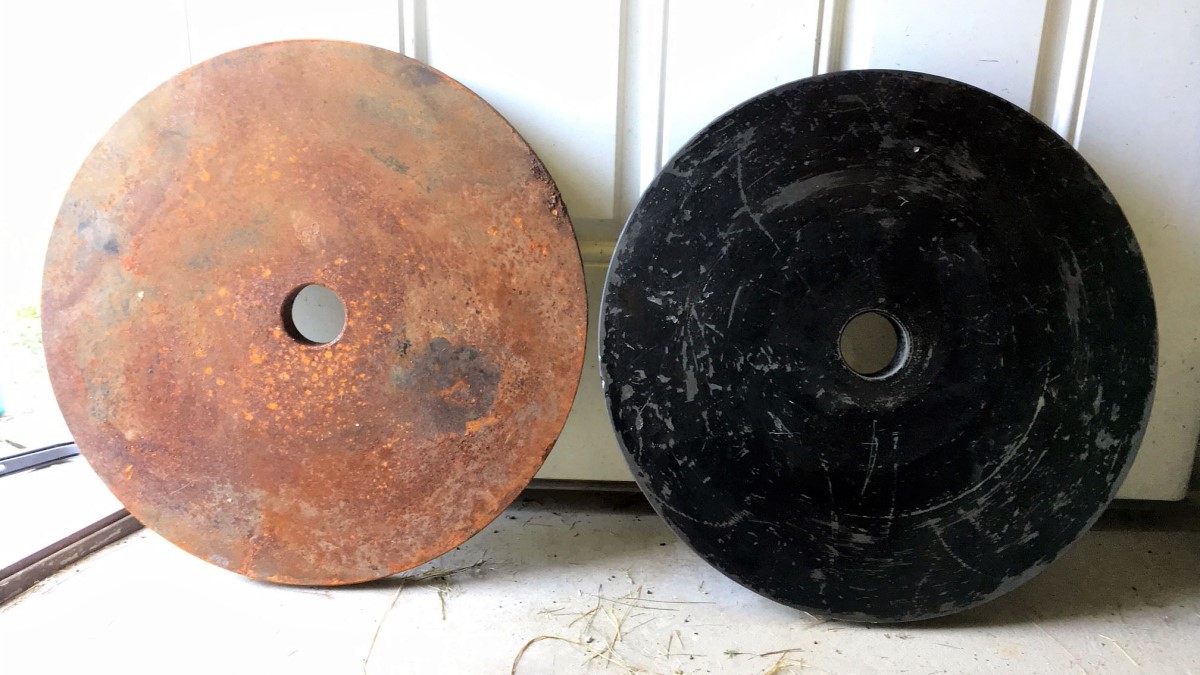
Repainting
Before painting, be sure you have dealt with the rust first as instructed above. You don’t want any rust underneath the paint.
Secondly, paint sticks best to clean surfaces. If you didn’t already treat the surface with a rust reformer, get rid of any oil or dirt on the plates by wiping them down with a rag soaked in a very light solution of dish soap, and dry well with a lint-free cloth.
Put down some drop cloths or cardboard. You will make a mess. Do it in a well-ventilated area.
Think about spraying on universal bonding primer before the paint itself. The manufacturer of your plates probably didn’t do it originally, but look where that got it. However, they almost certainly baked on the paint for maximum hardening, which you won’t be doing. (Please don’t cook your painted plates in your kitchen oven)
Now, spray paint it! Do one side, wait a day, flip and do the other side. Go with a nice metallic color that is formulated to work well on metal surfaces.
Here’s what you can expect if you do a good job:
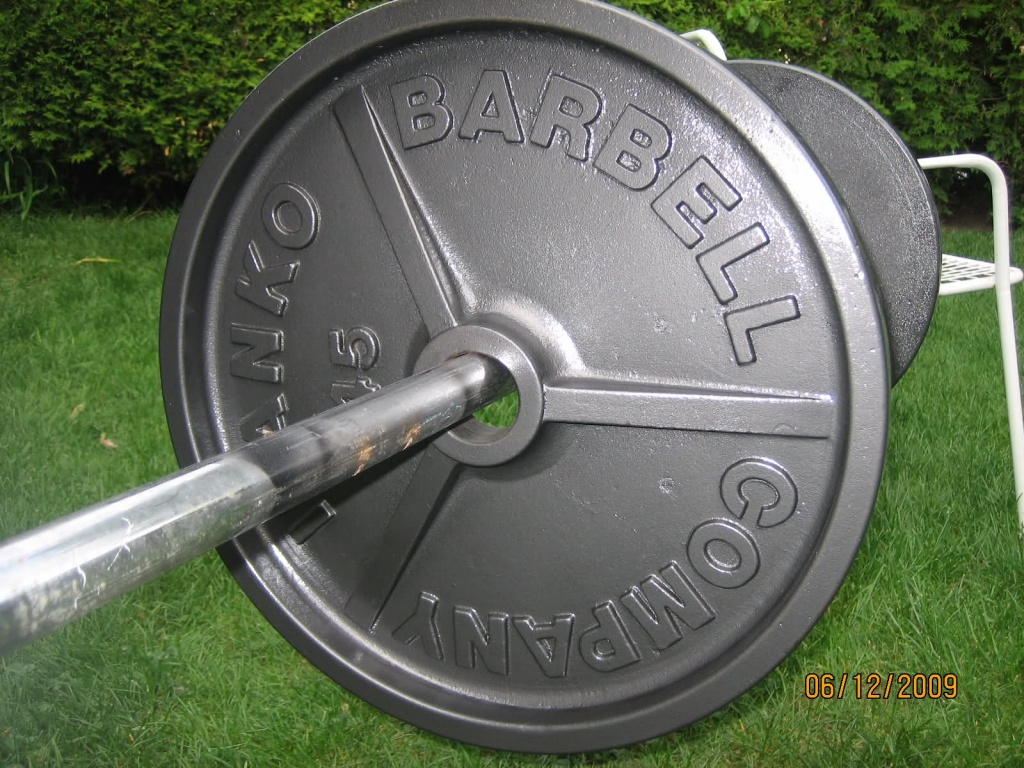
source: Accutron on bodybuilding.com
Video
Joshua Land has a popular video on restoring a collection of weights, including plates, bars and collars:
Try out one of these methods, and post a link to your results in the comments below!

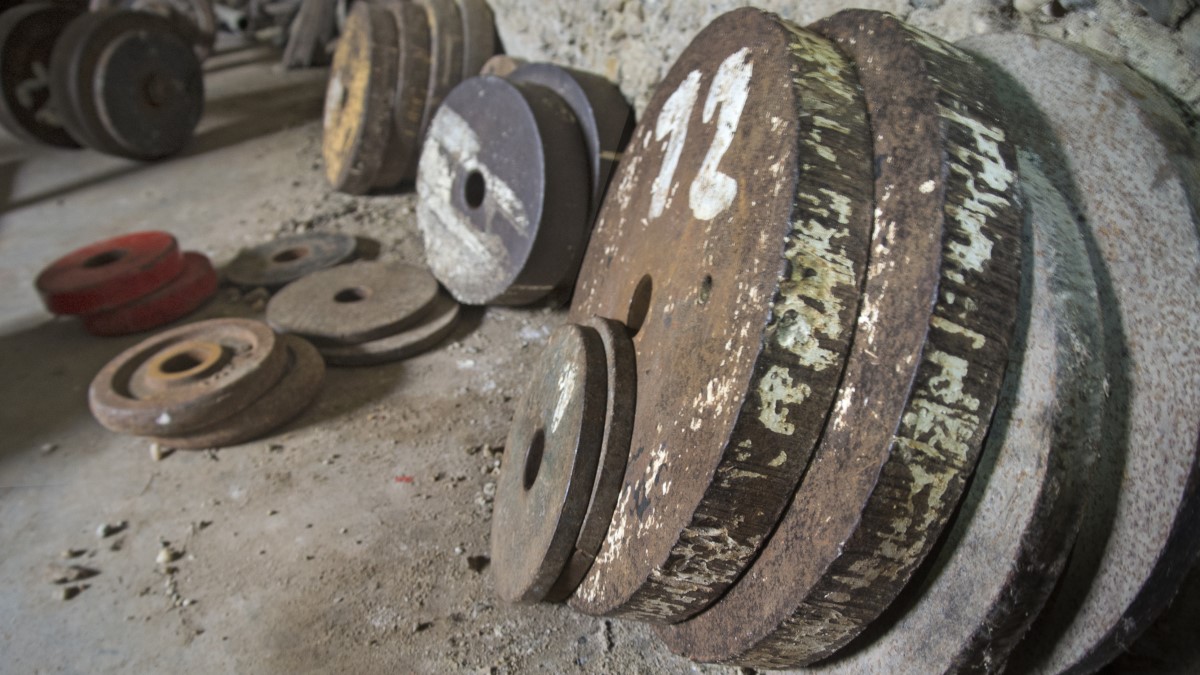
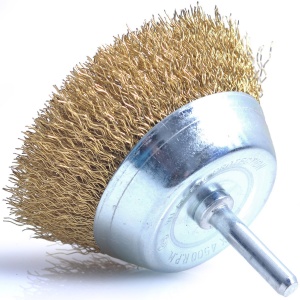
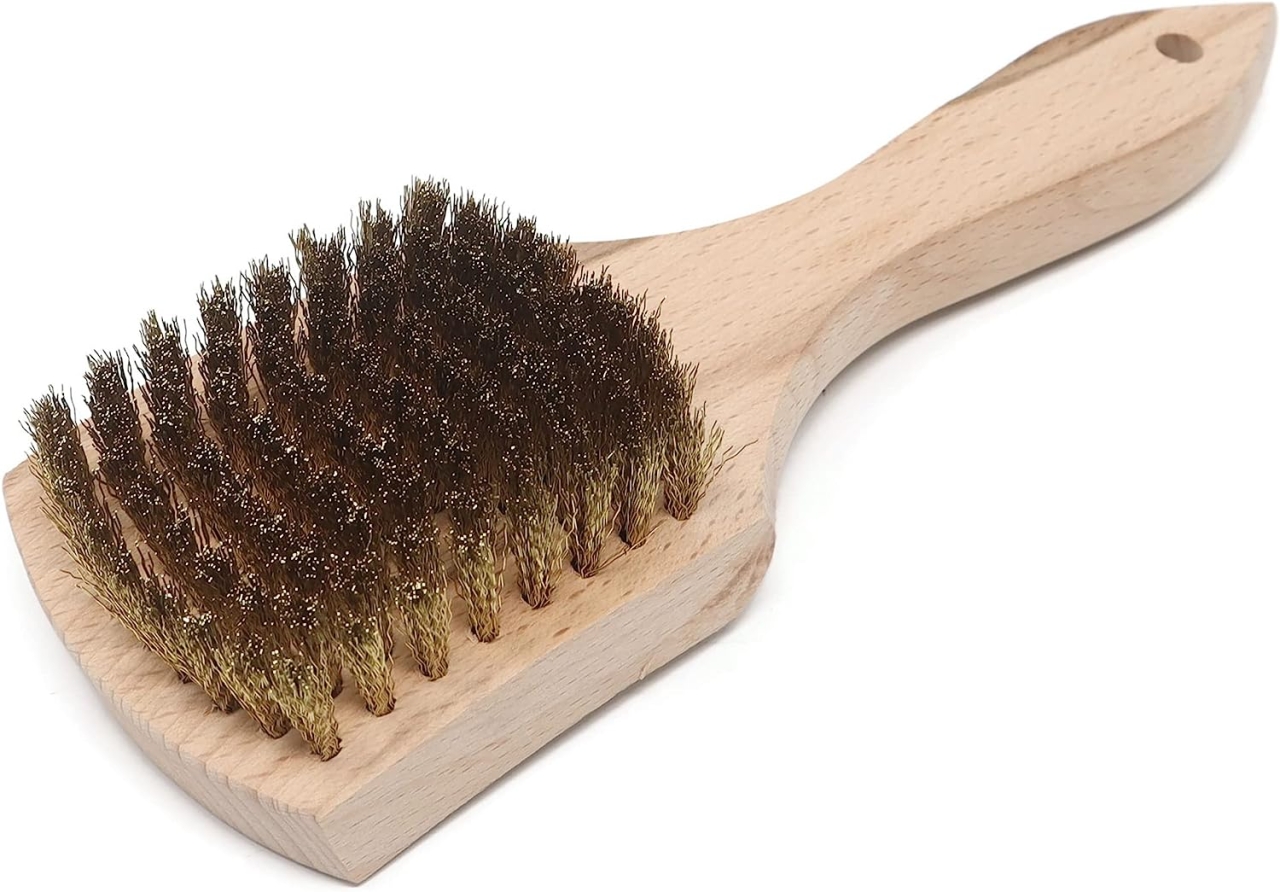
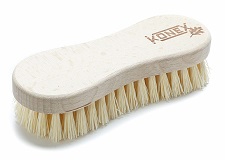
ok say i strip the paint off of my plates. can i then cure them in the oven, treating them like a cast iron skillet?
Interesting thought. I found this thread about it. The general idea seems to be that seasoning cast iron in the oven with oil doesn’t last that long, and that there’s a reason everyone uses paint. If you try it let me know how it goes!
https://forum.bodybuilding.com/showthread.php?t=150335413&page=1
Thanks for the link!
I’m refurbishing vintage Weider International kilo plates, so I want to make sure the finish is perfect. I’m going to experiment with this even finish and I’ll let you know if it’s any good! Thanks again.
I use citric acid powder (CAP):water w/ 3 oz CAP to every 1 gal water. Soak for 24 hours and wipe off. Paint and/or oil if desired. The below photo shows 2 plates from the same batch – before and after a 24h soak (no painting or oiling).
https://ibb.co/87d6Mkc
That looks great! I’ll have to add the CAP instructions to the post. Can I use that pic?
Sure, go ahead.